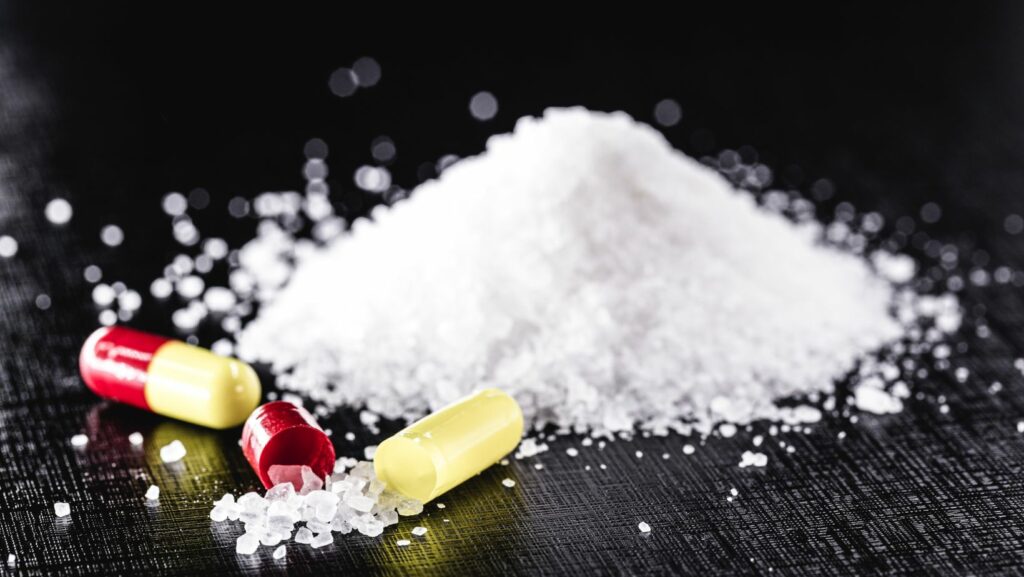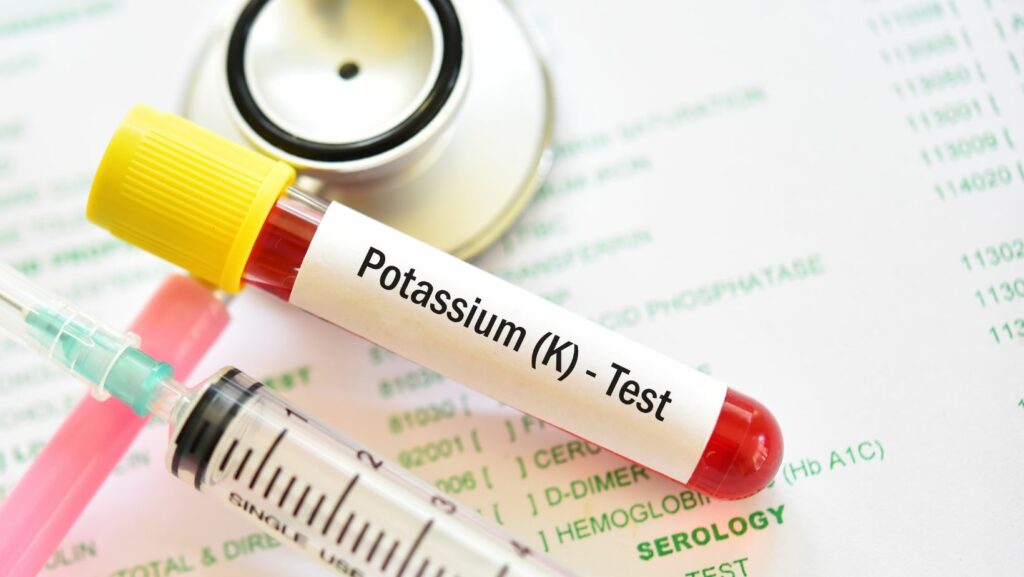
Potassium is an essential mineral that plays a role in many bodily functions, including maintaining fluid balance, muscle contractions, and heart function. A potassium deficiency, also called hypokalemia, can occur when your body doesn’t have enough potassium. Hypokalemia can cause Muscle weakness
- Fatigue.
- Constipation.
- Heart arrhythmias.
A potassium deficiency is usually caused by a loss of potassium from the body. This can happen due to certain medications, diarrhea, and vomiting. It can also be caused by inadequate intake of potassium-rich foods. Severe cases of hypokalemia may require hospitalization and intravenous (IV) fluids and medication. You can help prevent a potassium deficiency by consuming potassium-rich foods and beverages and by taking supplements if needed.
What is Potassium?
Potassium is a essential mineral that is found in many foods. It is important for the proper function of all cells, tissues, and organs in the body.
Potassium is necessary for the heart to beat properly and for muscles to work correctly. It helps to regulate blood pressure and fluid balance in the body. Potassium is measured in milligrams (mg) and micrograms (mcg). The recommended daily intake (RDI) for potassium is 4,700 mg. Most people get enough potassium from their diet.

Potassium deficiency, or hypokalemia, is when levels of potassium in the blood are too low. Potassium levels can be low due to poor diet, certain medical conditions, or treatments. Low potassium can cause muscle weakness, cramps, and irregular heartbeat. Potassium levels can be checked with a blood test. Treating potassium deficiency usually involves taking potassium supplements or increasing potassium intake through diet.
Functions of Potassium
Potassium is essential for the function of all cells, tissues, and organs in the human body. It is especially important for proper muscle function and heart function. Potassium is a electrolyte, which means it helps to conduct electricity in the body. This is why potassium is so important for proper muscle function.
Potassium also helps to regulate fluid balance in the body. It does this by helping to remove excess sodium from the body. Sodium retention can lead to high blood pressure, so it is important to maintain a healthy balance of potassium and sodium in the body. Potassium is found in many foods, including fruits, vegetables, meat, poultry, fish, dairy products, and nuts. The best way to get adequate potassium is through a healthy diet that includes a variety of potassium-rich foods. Potassium supplements are also available and may be recommended by a healthcare provider if necessary.
Potassium Deficiency
Potassium is a vital mineral for human health, playing a role in muscle contraction, nerve function, and fluid balance. A potassium deficiency, also called hypokalemia, can cause many problems, including muscle weakness, cramping, and arrhythmias (irregular heartbeats).
The body needs potassium to maintain a proper balance of fluids and electrolytes. Potassium is found in many foods, such as fruits (especially bananas and oranges), vegetables (such as potatoes and tomatoes), meat, fish, milk, and nuts. The recommended daily intake of potassium is 4,700 mg per day for adults.

A potassium deficiency can occur when there is not enough potassium in the diet or when the body loses too much potassium. Causes of potassium loss include vomiting, diarrhea, excessive sweating, certain medications (such as diuretics or corticosteroids), and kidney disease. Symptoms of a potassium deficiency include muscle weakness, cramping, twitching, and irregular heartbeat. Severe hypokalemia can lead to cardiac arrest and death. If you think you may have a potassium deficiency, see your doctor for diagnosis and treatment. Treatment may involve taking potassium supplements or getting more potassium in your diet.
Causes of Potassium Deficiency
Potassium is an essential mineral that helps maintain fluid levels in the body, aids in muscle contraction, and keeps the heart beating regularly. Potassium deficiency, also called hypokalemia, can lead to a variety of health problems.
There are several causes of potassium deficiency, including:
- Excessive sweating.
- Vomiting or diarrhea.
- Certain medications, such as diuretics and laxatives.
- Eating disorders, such as anorexia or bulimia.
- Poor nutrition or malabsorption disorders.
- Certain medical conditions, such as renal failure or adrenal insufficiency.
Symptoms of Potassium Deficiency
Potassium is a mineral that is found in many foods and is needed for several functions of your body, especially the beating of your heart. A potassium deficiency, or hypokalemia, can cause serious health problems.
Symptoms of potassium deficiency include:
- Muscle weakness.
- Fatigue.
- Heart arrhythmias (abnormal heartbeats).
- Digestive problems.
- Numbness or tingling.
- Anxiety
A severe potassium deficiency can lead to paralysis and even death.
Diagnosis of Potassium Deficiency
There are several ways to diagnose potassium deficiency. The most common is a blood test. Your doctor may also recommend an electrocardiogram (ECG) to check your heart function. You may also need a urine test to check your potassium levels.
Treatment of Potassium Deficiency
Potassium is a vital electrolyte mineral that is present in all body tissues. It is necessary for the proper function of nerves and muscles, including the heart muscle. Potassium is also involved in fluid balance, and it helps to offset the effects of sodium in the body. A potassium deficiency, also known as hypokalemia, can lead to a number of serious health problems.
The most common cause of potassium deficiency is excessive sweating, which can deplete the body’s stores of this essential mineral. Other causes include diarrhea, vomiting, and certain medications such as diuretics (water pills), steroids, and beta blockers. Symptoms of potassium deficiency include muscle weakness, cramping, and irregular heartbeat.
Potassium levels are measured in milligrams (mg) or milliequivalents (mEq). The recommended daily intake of potassium for adults is 4,700 mg (about 100 mEq). The recommended daily intake for children is 3,500 mg (about 75 mEq). For infants and toddlers, the recommended daily intake is 2,000-3,000 mg (about 40-60 mEq).
Treatment for potassium deficiency typically involves taking potassium supplements in the form of tablets or capsules. The amount of potassium needed will depend on the severity of the deficiency and the underlying cause. In some cases, food sources of potassium may be recommended as well. These include potatoes, sweet potatoes, squash, tomatoes, banana pudding
How Many Meq is 99 mg of Potassium
The best way to prevent potassium deficiency is to eat a healthy diet that includes potassium-rich foods. The recommended daily intake of potassium for adults is 4,700 mg. Good sources of potassium include fruits and vegetables, legumes, nuts and seeds, fish and lean meats. You can also get potassium from supplements, but it’s always best to get your nutrients from food first.
Conclusion
It is recommended that adults consume between 2000-3500 mg of potassium per day. A safe and effective dose of potassium for treating potassium deficiency has not been established, but typically range between 30-100 meq/day. For the most part, dietary restrictions are unnecessary with potassium supplementation, but it is important to speak with a healthcare professional prior to starting any treatment regimen.
Leave a Reply